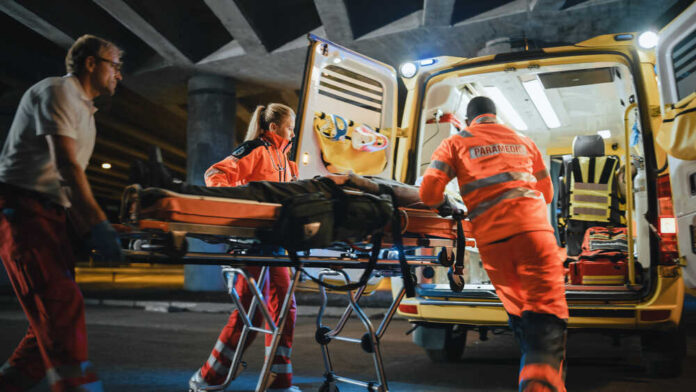
A recent poll conducted by the American College of Emergency Physicians (ACEP) has estimated that about half of American adults are not prepared to act in a medical emergency. The results of the survey are a wake-up call for the need to increase emergency preparedness.
Lack of Preparedness
In the survey, 76% of respondents felt confident in their ability to communicate with 911 operators.
But only 55% felt prepared to perform CPR. Furthermore, 47% of respondents felt prepared to apply a tourniquet to control severe bleeding, and a different 47% felt prepared to move a victim to safety.
Fewer than 29% felt prepared to use an automatic external defibrillator (AED).
Importance of Quick Action
With this survey, the ACEP and other health organizations continue to highlight the importance of quick action in medical emergencies.
According to the U.S. National Heart, Lung, and Blood Institute, 90% of cardiac arrests that occur outside of a hospital are fatal. The CDC states that CPR performed within the first few minutes of cardiac arrest can increase the chance of survival by up to three times.
Be Willing to Act
The survey also found that 83% of adults who have received emergency training are willing to act and respond to a medical crisis while waiting for professional emergency responders to arrive. This shows that with the right training, people are willing to take action in an emergency situation.
Until Help Arrives
To address the lack of preparedness, ACEP is partnering with the American Red Cross on an education program called “Until Help Arrives”. This free, one-hour training course aims to educate the public on how to respond to medical emergencies and provide them with the necessary lifesaving skills to take action in the time before professional emergency responders arrive.
In addition to programs like this, here are some basic steps you can take to prepare yourself and your family in the event of a medical emergency:
● Have a first aid kit on hand at all times.
● Make sure you and your family members know how to contact emergency services.
● Talk to your family and prepare an emergency plan in the event of an unexpected medical crisis.
● Be aware of your surroundings and any potential hazards.
● Take a CPR and first aid course.
● Be familiar with the use of medical devices such as AEDs, EpiPens, and tourniquets.
● Learn the warning signs of common medical emergencies such as strokes, seizures, and heart attacks.
● Stay informed about the health of your family members and how to handle any medical emergencies.
● Know where the nearest emergency medical facilities are located.
Being trained and ready for a crisis could potentially save someone’s life. Every minute counts in a medical emergency, and the more people equipped with lifesaving skills, the greater the chance of survival.






















